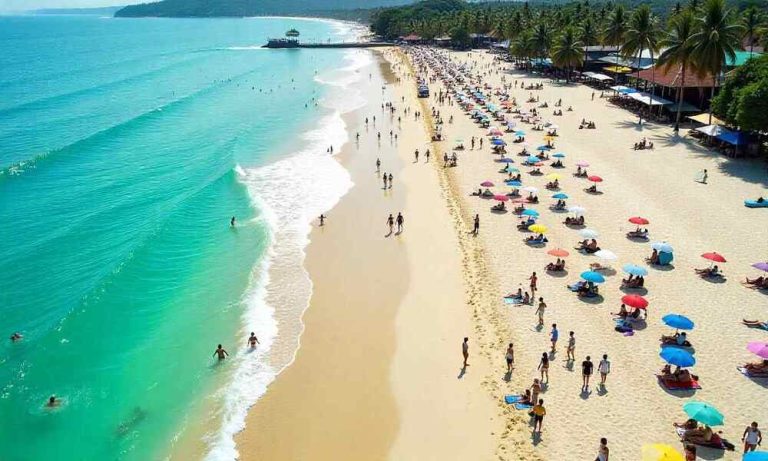Friday, March 7, 2025

Bali Governor Wayan Koster has announced plans to implement a new policy aimed at safeguarding the island’s coastline and beaches from privatization.
Local leaders and communities have raised growing concerns over the increasing influence of commercial interests on the management and accessibility of coastal areas. Many fear that unchecked development could limit public access and disrupt the island’s natural and cultural heritage.
During his initial weeks back in office, Bali Governor Wayan Koster introduced 15 new Priority Regional Regulations.
Among the most significant for visitors is a policy designed to prevent beach privatization, particularly in Denpasar City and Badung Regency.
This initiative aims to strengthen protections for popular coastal areas, including Sanur, Nusa Dua, Uluwatu, Jimbaran, Kuta, Legian, Seminyak, and Canggu, ensuring continued public access to these iconic shorelines.
Governor Wayan Koster introduced the new policy updates during an event called First Welcome Speech of the Governor of Bali for the 2025-2030 Period. The announcement took place at the 9th Plenary Meeting of the Bali Provincial DPRD, held at Niti Mandala, the Governor’s Office in Denpasar.
Governor Wayan Koster referenced recent disputes concerning commercial activities and public beach access, highlighting incidents such as the fireworks controversy at Finns Beach Club, the placement of barrier buoys at Serangan Beach, and concerns over an alleged beach renaming in the same region.
Bali has always maintained regulations preventing tourism businesses or any commercial entities from privatizing sections of its coastline.
Despite this, some businesses have, over the years, promoted misleading marketing materials suggesting that their guests enjoy exclusive access to certain beach areas.
The newly introduced legislation aims to eliminate any ambiguity, reinforcing the authority of the Bali Provincial Government to hold businesses accountable if they falsely claim private access to coastal areas or restrict public entry.
In Bali, numerous hotels, resorts, beach clubs, restaurants, and bars are situated along the coastline, providing direct access to the beach. However, none hold legal rights to exclusive use of these areas. Instead, many operate under permits or agreements that allow them to conduct business activities on specific beachfront locations.
While the public retains the right to access these beaches at any time, amenities such as beach chairs, umbrellas, and cabanas remain under the control of the businesses authorized to operate in those sections.
The newly introduced policy is designed to preserve Bali’s coastline for both local communities and visitors, ensuring that tourists will always have access to the island’s most popular beaches. However, exceptions will apply in cases where temporary closures are required for significant Balinese Hindu ceremonies, such as Melasti.





